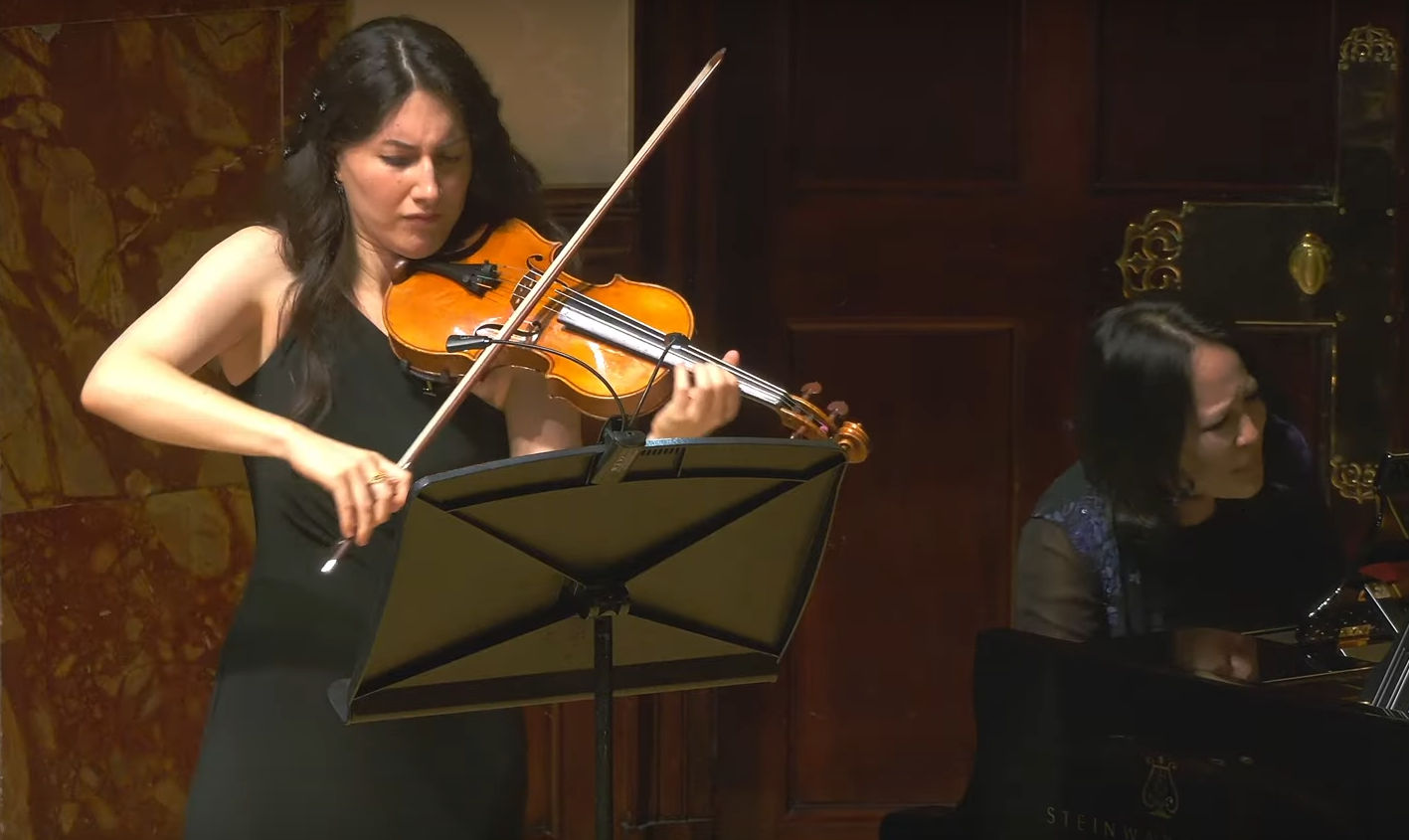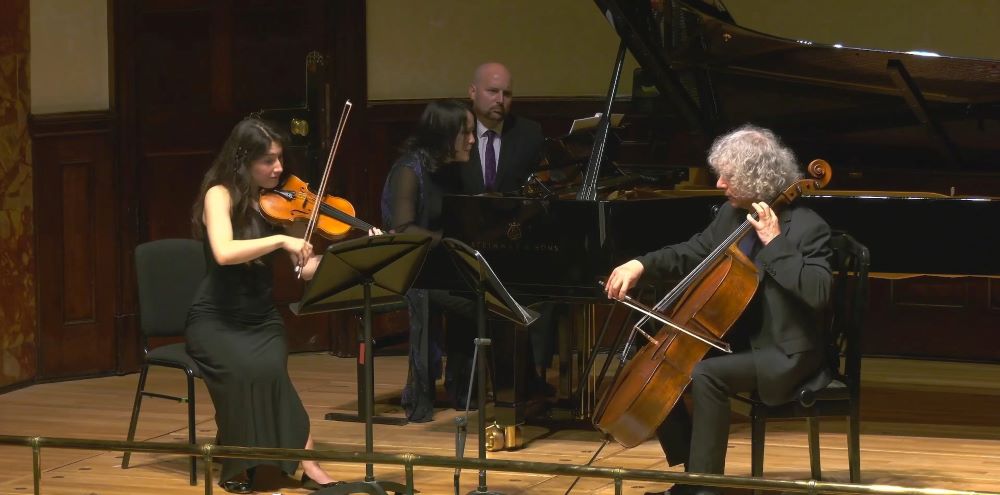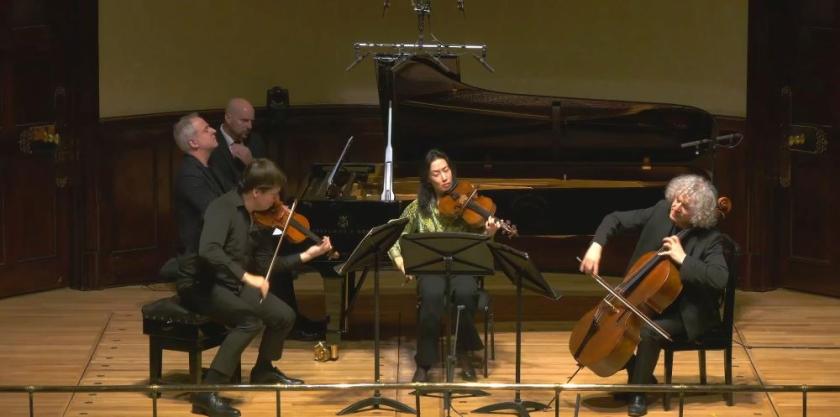Earlier this year, Steven Isserlis curated a revelatory Sheffield Chamber Music Festival spotlighting Saint-Saëns, with plentiful Fauré towards the end. Now it’s the younger composer’s turn, marking his death 100 years ago on 4 November 1924, but his mentor has more than a look-in over five concerts featuring six bright stars, "Team Fauré".
Friday’s launch made us love Fauré even more, but also opened many ears to the early genius of Saint-Saëns. The programme, delivered to an audience dotted with familiar faces among musicians, was not quite as planned. Personable and wry as ever, Isserlis came on at the start to tell us that his collaborator of 30 or so years, great violinist Joshua Bell, had gone down with the norovirus and suffered “the worst night of his life”, but took an infusion and would gamely take on his part in Fauré’s First Piano Quartet as planned – but not the A major Sonata. Irène Duval, his and Isserlis’s junior by a fair few years but already an ideal Fauré interpreter, and pianist Connie Shih would instead play the late Second Sonata (the two pictured below), actually due on Sunday (presumably a straight swap is involved).  This took us to the heart of that higher plane about which Duval wrote so eloquently for theartsdesk: elusive, harmonically restless, impassioned yet subtle. Her whole body moves with the upward-striving ecstasy; you don’t need to wonder where the music’s going in such hands. Shih seemed to favour more stormy weather than we often get in this work, but created special magic in the little turns of phrase which so grace the slow movement.
This took us to the heart of that higher plane about which Duval wrote so eloquently for theartsdesk: elusive, harmonically restless, impassioned yet subtle. Her whole body moves with the upward-striving ecstasy; you don’t need to wonder where the music’s going in such hands. Shih seemed to favour more stormy weather than we often get in this work, but created special magic in the little turns of phrase which so grace the slow movement.
She and Duval were different creatures in Saint-Saëns’ First Piano Trio (pictured below with Isserlis) – not actually, as I heard the presenter claim when listening again on YouTube (all five concerts will be found there, amazingly), his first successful work from posterity’s perspective. In Thursday’s Zoom class in a term of “Later Berlioz and Beyond”, blithely ignorant of Friday's programme until a student told me, I argued the case not only for the First Piano Trio but also for several early orchestrated songs and above all the serene finale of the First Piano Quartet, composed a decade earlier when the composer was still in his teens. But the first movement here is certainly memorable in its shifting rhythmic patterns and transformations, while the second mines that vein of olde France which was to achieve a high profile later in the century (the second contrasting episode is a remarkable blossoming).  Duval and Isserlis relished their exchanges here, the violinist’s tone altered to chased silver to match the great cellist, while Shih’s liquid flights came as a surprise after her way with the Fauré sonata. After the magical intermezzo of Nadia Boulanger’s Trois Pièces for cello and piano, straddling the great divide of 1914 with a not too rhythmically complex but technically ferocious homage to Stravinsky’s Rite of Spring in the finale, came what is perhaps Fauré’s first truly breathtaking large-scale masterpiece. Here the string trio – Bell now replacing Duval, to neither’s detriment, viola-player Blythe Teh Engstroem and Isserlis again – work more as a group than the two players in the Saint-Saëns. Shih’s variety had nothing to fear from the arrival of live wire Jeremy Denk, though if anything he’s even more entertaining to watch.
Duval and Isserlis relished their exchanges here, the violinist’s tone altered to chased silver to match the great cellist, while Shih’s liquid flights came as a surprise after her way with the Fauré sonata. After the magical intermezzo of Nadia Boulanger’s Trois Pièces for cello and piano, straddling the great divide of 1914 with a not too rhythmically complex but technically ferocious homage to Stravinsky’s Rite of Spring in the finale, came what is perhaps Fauré’s first truly breathtaking large-scale masterpiece. Here the string trio – Bell now replacing Duval, to neither’s detriment, viola-player Blythe Teh Engstroem and Isserlis again – work more as a group than the two players in the Saint-Saëns. Shih’s variety had nothing to fear from the arrival of live wire Jeremy Denk, though if anything he’s even more entertaining to watch.
Irresistibly so, in fact, as the head bobbed between keyboard and darting glances at the other players in front of him during one of the most delectable scherzos ever composed, Fauré choosing carefully in a classy sweetshop. The move to lament somehow works as the composer keeps it classical, an unforgettable vocal theme forged from rising portions of the scale which are then transformed in the finale (its blithe second subject surely inspired Puccini in the love duet of Madama Butterfly). The gold medal of the evening was clinched by the way the four players notched up the excitement in the final sprint towards a happy ending; only live performance can achieve such an adrenalin charge. Don’t miss the infinite treasures still to come.
- Watch this concert and its four successors on the Wigmore Hall's YouTube channel
- Centenary series continues to 5 November at the Wigmore Hall
- More classical reviews on theartsdesk













Add comment